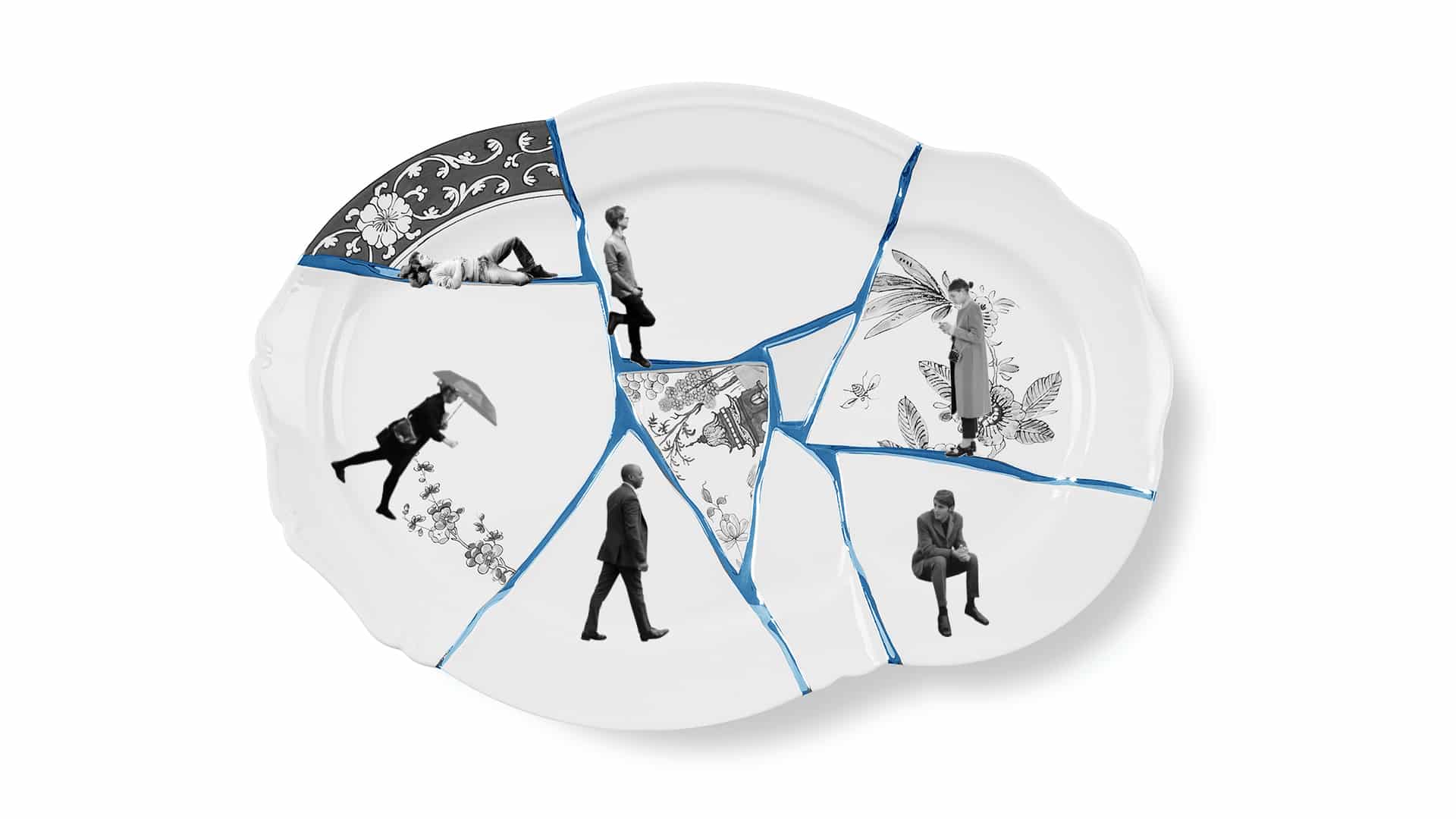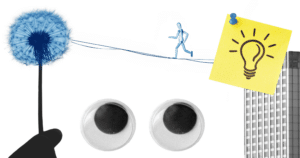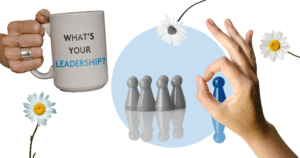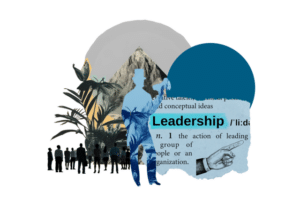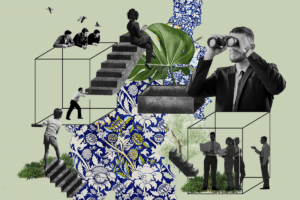What do you concretely need to manage a rapidly changing world? The answer is simple: it is learning-orientedness. If one does not learn and adapt, one will not survive. But what does this mean for organizations? It essentially requires them to accelerate their learning and transform it into a real business mantra. Being learning-oriented is tantamount to being inclined towards growth and evolution. It also means to tolerate errors and to embrace them as an opportunity for improvement. It can make a difference for the success of any organization. So, how can it be implemented into the corporate culture? What skills need to be trained and what attitudes to be adopted?
In view of the fact that the world and external conditions evolve quickly, the economic system of a company must change accordingly to stay afloat. Once we understand that our impact damages the system itself, it becomes necessary to change course.
Companies need to learn and to adapt to the environment, as the larger world system of which each company is a part, is the source of nourishment that determines our long-term survival.
Learning and adapting become the objective. Change is necessary to adapt to changing external conditions: it becomes essential to abandon obsolete models and apply new ones
The question is, how can we actually accelerate this transition in corporate culture?
Through the Business Coaching methodology, we train new approaches that allow a practical transition from a fixed mindset to a learning-oriented one. The first limits growth and evolution (those who do not learn do not survive), whereas the second promotes them:
- A fixed mindset looks at the world in black and white, has a tendency to issue and impose judgements, to make value statements that rigidly distinguish right from wrong. It points fingers, condemning those who make mistakes;
- A learning mindset, on the other hand, allows us to make mistakes as opportunities for improvement and growth. We can therefore define it as a judgement-free mentality that can promote individual and consequently collective learning at the team level.
How can one implement it? Which attitudes are useful and effective for building a learning-oriented corporate culture? Here are some examples of how we, as Business Coaches, work to create a collective learning mindset.
First of all, create the conditions for a safe learning environment. It requires:
- absence of fear (of errors, of one’s own judgement and that of others, of appearing stupid, etc …): it enables free expression of opinion and the opportunity to take risks.
- openness to diversity of thought and perspective: it facilitates collective learning, because a system that listens, questions itself, and welcomes what is different is a system that fully exploits its resources.
Team Coaching works in this sense. Feeling welcome and at ease is an essential condition for the proper functioning of a team. It lays the fundamental foundations for the subsequent steps. Team Coaching is configured as a practice in which learning plays a central role. It trains new behaviours that enable evolution and adapting to the external context. Doing so and with the help of exercises, it concretely makes the transition to a learning mindset possible:
- Celebrating mistakes creates an error culture: the team is to choose the mistake of the week. It will then be shared and made the subject of common reflection, so that it can be avoided in the future. This step is very challenging in many corporate cultures because there is still a tendency to find a culprit, but numerous studies show that an error-oriented mentality is therefore more likely to achieve effective improvement.
- A judgement-free environment: this specific training consists in inserting an “empty” space between an event and our “evaluation” of it. The goal is to gain awareness, in particular of our natural tendency to make judgements, to label what happens around us while continuing our observation of what happened. It is a very challenging exercise, as there is a clear and widespread tendency to judge, especially in business. The first step is to become aware of this mechanism.
- Possibility of expression at all levels: we allow the team to activate its collective intelligence. During the Coaching Conversation sessions, the team practicses to actively listen to each member. Each of whom is called to share their contribution with the others, and to listen deeply, actively, and without any prejudice.
- Collective reflection: after each exercise the team asks a few questions: How did the meeting go? What was the decision-making process? Did we listen to each other? Have we been effective? What can we do to improve for next time? Reflection also leads us to understand where we are going, where we want to go, and for what reason.
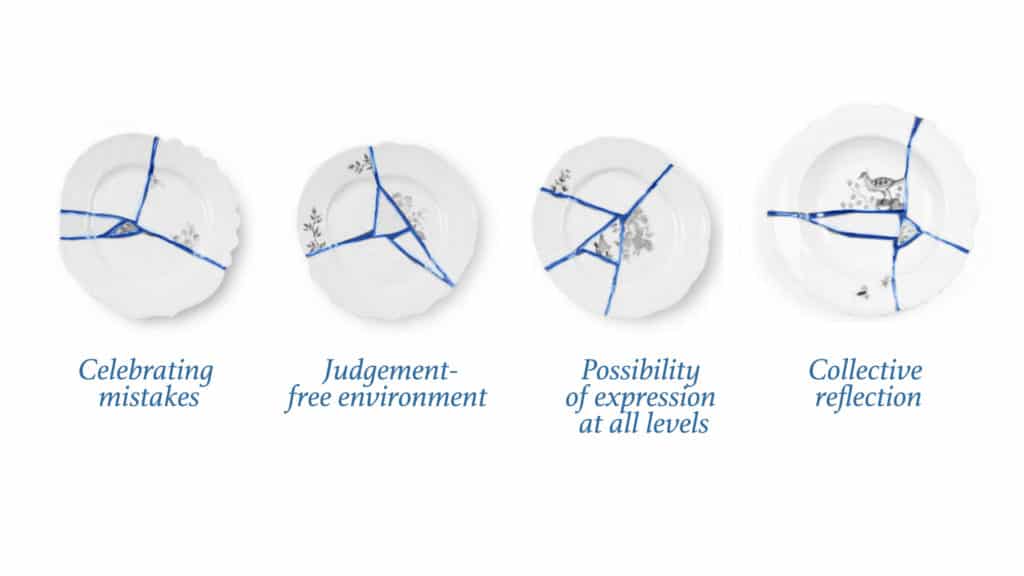
Business Coaching is a methodology that can support organizations to transit towards a learning-oriented mindset. It encourages the training of skills that aim at learning, growth and development.
A human being, just like an organization, who stops learning, embarks on a journey towards their end. To remain vital, to improve one’s future, it is essential to objectively look at which behavior is functional and which one is not. Constantly adjusting the course, just like a captain adjusts the direction according to the winds, makes a huge difference.

